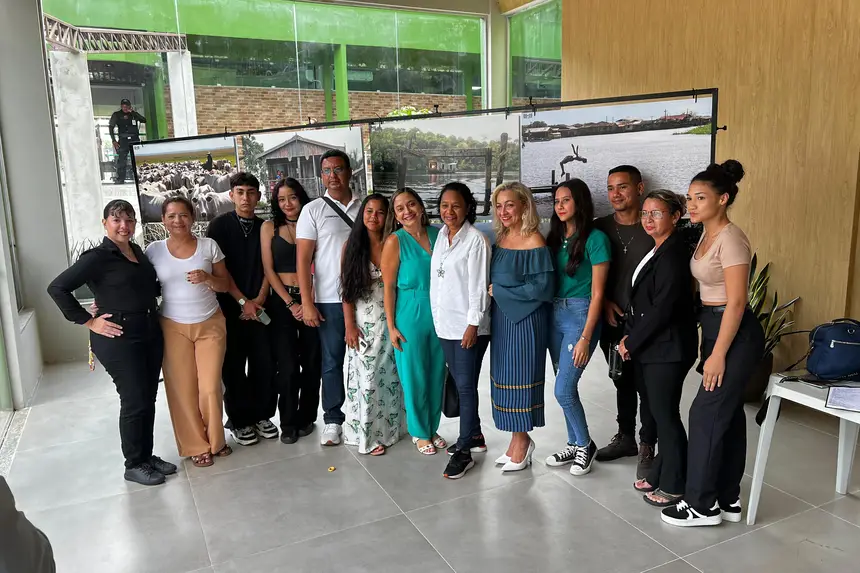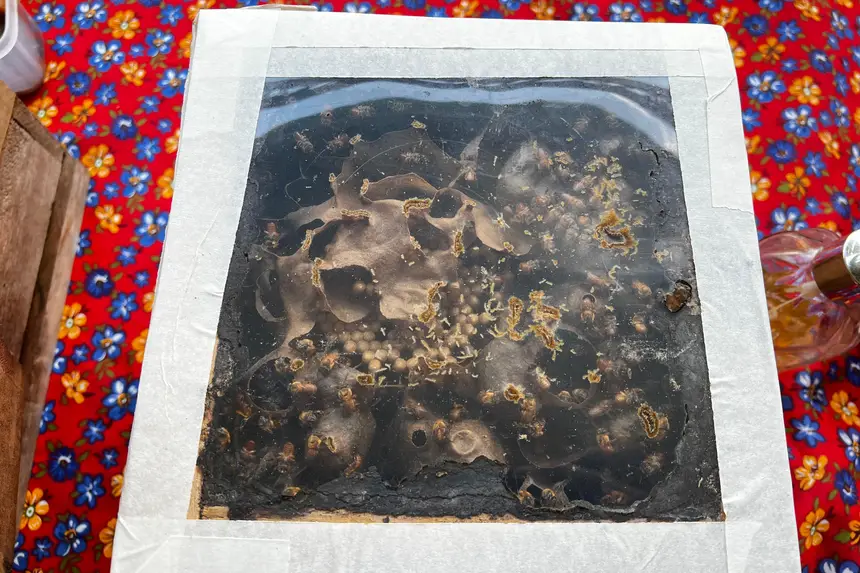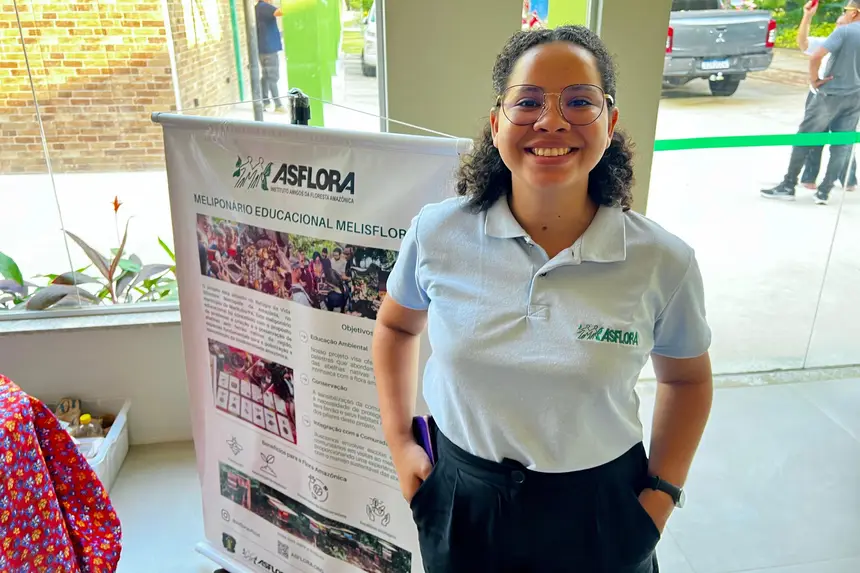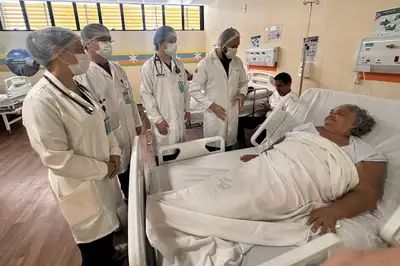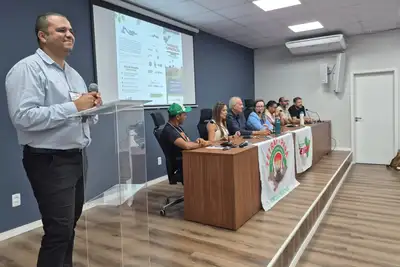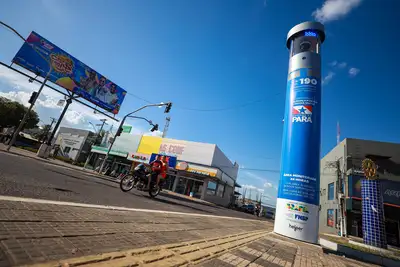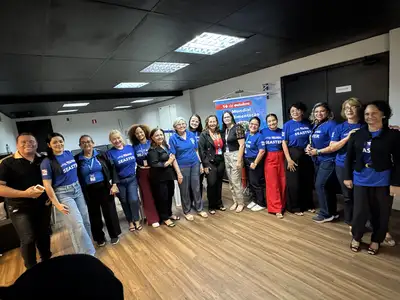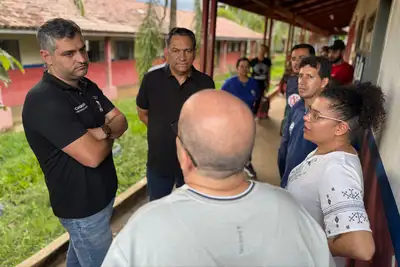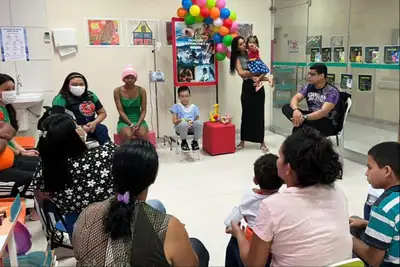Stingless Bees Take Center Stage at the 1st Pará Trails Congress
The audience got to know a box of stingless bees, understood the ecological relevance of these native Amazon species, and tasted honey of different colors and flavors.
The 1st Pará Trails Congress, held from September 15 to 17 at the auditorium of the Institute for Forest Development and Biodiversity of Pará (Ideflor-Bio) in Belém, opened on Tuesday (16) a space for a unique experience for participants: the exhibition of the Educational Meliponary Melisflora. The audience got a close look at a box of stingless bees, understood the ecological importance of these native Amazon species, and also tasted honey with different colors and flavors.
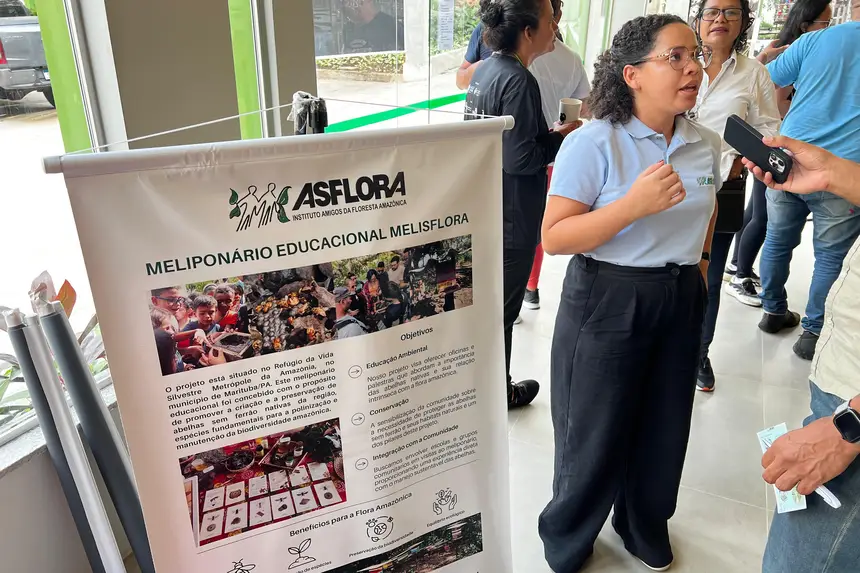
The Melisflora Project is an initiative of the Institute Friends of the Amazon Forest (Asflora), and is implemented in the Metropolitan Amazon Wildlife Refuge in Marituba, a municipality in the Metropolitan Region of Belém, one of the 29 conservation units managed by Ideflor-Bio, with the mission of uniting environmental education, conservation, and community integration. The space is intended for both the sustainable management of native bees and raising awareness about their importance for pollination, the reproduction of plant species, and the maintenance of Amazonian biodiversity.
According to Jennifer Coelho, environmental consultant at the Asflora Institute, participation in the congress expands the reach of their work. “The Educational Meliponary is an idea from the Asflora Institute. We serve civil society by showcasing the diversity of stingless bees and their importance for the environment. Being here at the congress is significant because a large part of our activity takes place within a conservation unit, which also hosts trails,” she emphasized.
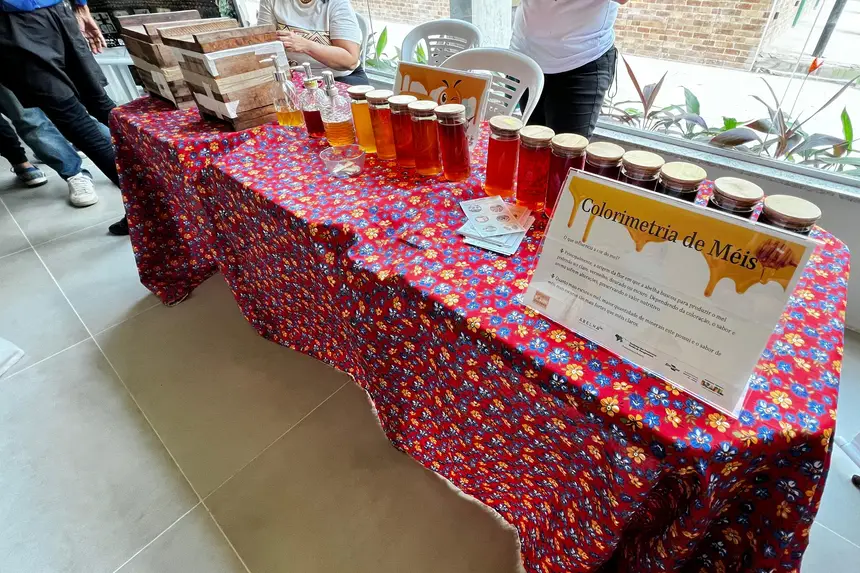
Diversity - The experience offered to visitors allowed them to understand that the color and flavor of honey vary according to the flowering. “Honey is made from the nectar of flowers, and this nectar directly influences the final result. The same species can produce different types of honey, both in color and flavor,” explained Jennifer Coelho. The educational space also receives students from public schools, who participate in awareness activities and take trails in the Wildlife Refuge.
For the manager of the Belém Administrative Region of Ideflor-Bio, Júlio Meyer, the exhibition reinforces the essence of the event, which seeks to integrate tourism, education, and conservation. “The Congress comes precisely to connect tourism initiatives with the purpose of nature conservation. The Asflora Institute has been a long-time partner in implementing the Atlantic Amazon Trail, and having them here is a privilege. Besides their commitment, the team demonstrates competence and innovation by treating nature as a central product for Pará's ecotourism,” he highlighted.
The Congress program, which brings together federal, state agencies, and civil society organizations, includes lectures, workshops, and immersive activities, such as hiking on trails and canoeing to the Environmental Protection Area (APA) of Combu Island, an insular region of Belém. “More than theory, we seek practice and fun in direct contact with the natural environment, which ensures greater integration among participants,” added Júlio Meyer.
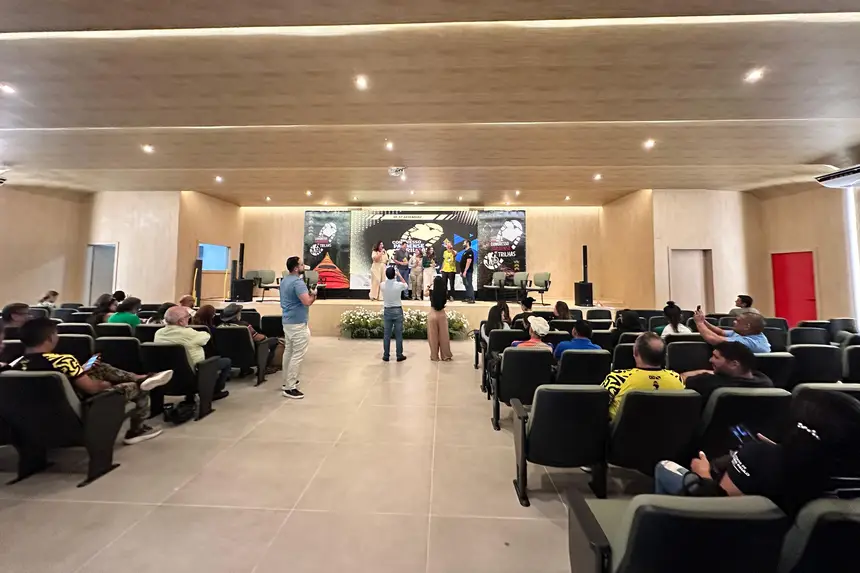
Integrated Network - The 1st Pará Trails Congress is considered a milestone for strengthening the activity in the State, which currently has nine registered trails. The expectation is that the exchange of experiences will foster the creation of new ecological corridors and contribute to the consolidation of an Integrated Pará Trails Network, aligned with the national model.
The program is the result of extensive collaboration between governmental, private institutions, and civil society, bringing together the Ministry of Tourism (MTur), the Ministry of Environment and Climate Change (MMA), Ideflor-Bio, Chico Mendes Institute for Biodiversity Conservation (ICMBio), State Tourism Secretariat (Setur), Federal Institute of Pará (IFPA), Conservation International, Brazilian Trails Network, and other partner organizations.
In addition to lectures, seminars, and workshops, the event is an opportunity to foster networking among participants. The goal is for the Congress to serve as a catalyst to identify and promote initiatives, bring people together, share experiences, and disseminate knowledge. The program concludes this Wednesday (17) at 6 PM.



